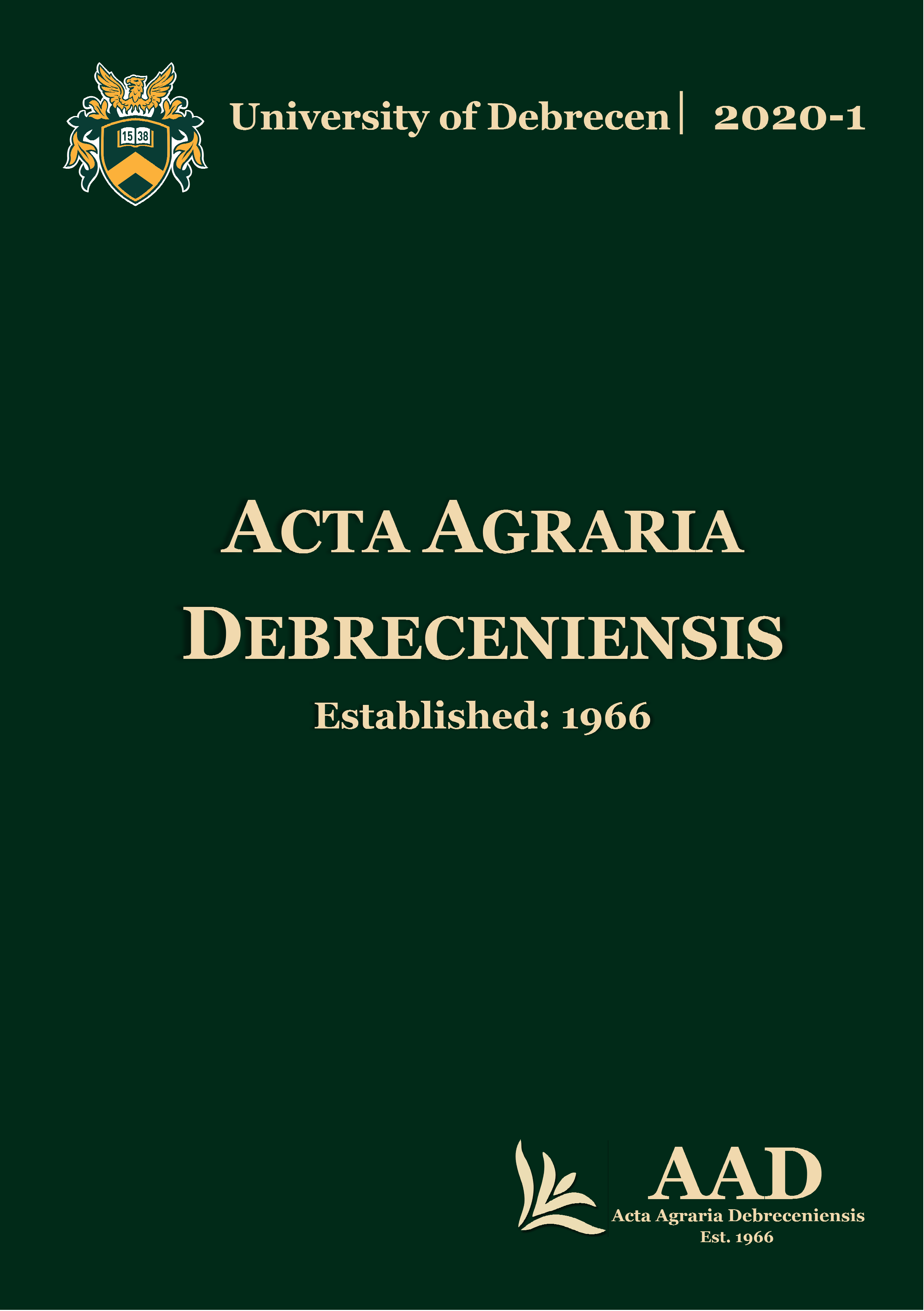Examination and statistical evaluation of physico-chemical parameters of windrow composting
Authors
View
Keywords
How To Cite
Accepted 2020-03-10
Published 2020-05-20
Abstract
The treatment and utilization of plant and animal waste and by-products from agriculture is very diverse. Traditional environmental management practices for waste management have been retained through soil conservation and the applied of recycle degradable organic substances in soil. The management of by-products from agriculture (animal husbandry) is important because a closed loop can be created to utilize by-products (manure, feathers) from the production of the main product (eggs, meat, milk) and to form a raw material for a new product. It is important to treat the resulting by-products, especially deep-litter manure, as it has served as a basis for compost-treated manure to develop an organic-based, soil-conditioning product line. Poultry manure by itself is not suitable as a substrate for aerobic decomposition, so it has to be mixed with other substances (zeolite, bentonite, soil), because of its high nutrient capacity, it is an acidifying substance.
The aim of this study was to compost the mixture of poultry manure and hen manure by the addition of zeolite and to monitor the composting process. It was also our aim to statistically determine the effect of the zeolite on parameters describing the composting process.
The windrow composting experiments were set up in the composting area of the University of Debrecen, Institute of Water and Environmental Management. The composting experiment was 62 days long, during which the main parameters describing the composting process were continuously monitored: temperature (°C), moisture content (w/w%), electrical conductivity (mS/cm), organic matter content (w/w%), examination of nitrogen forms (w/w%). In this study, three factors were investigated: temperature, humidity, and pH. For statistical evaluation, R software and RStudio user interface were used. We developed a repeated measurement model, in which the fixed and random effects were determined for our parameters under study, and the resulting relationships were shown on interaction plots.
Based on our results, the temperature of the prisms has become independent of the ambient temperature and the composting stages can be separated in both the control and the zeolite treated prisms. In the repeated measurement model, we proved that treatment, time and treatment: time interaction were significant at both temperature and pH.

 https://doi.org/10.34101/actaagrar/1/3726
https://doi.org/10.34101/actaagrar/1/3726